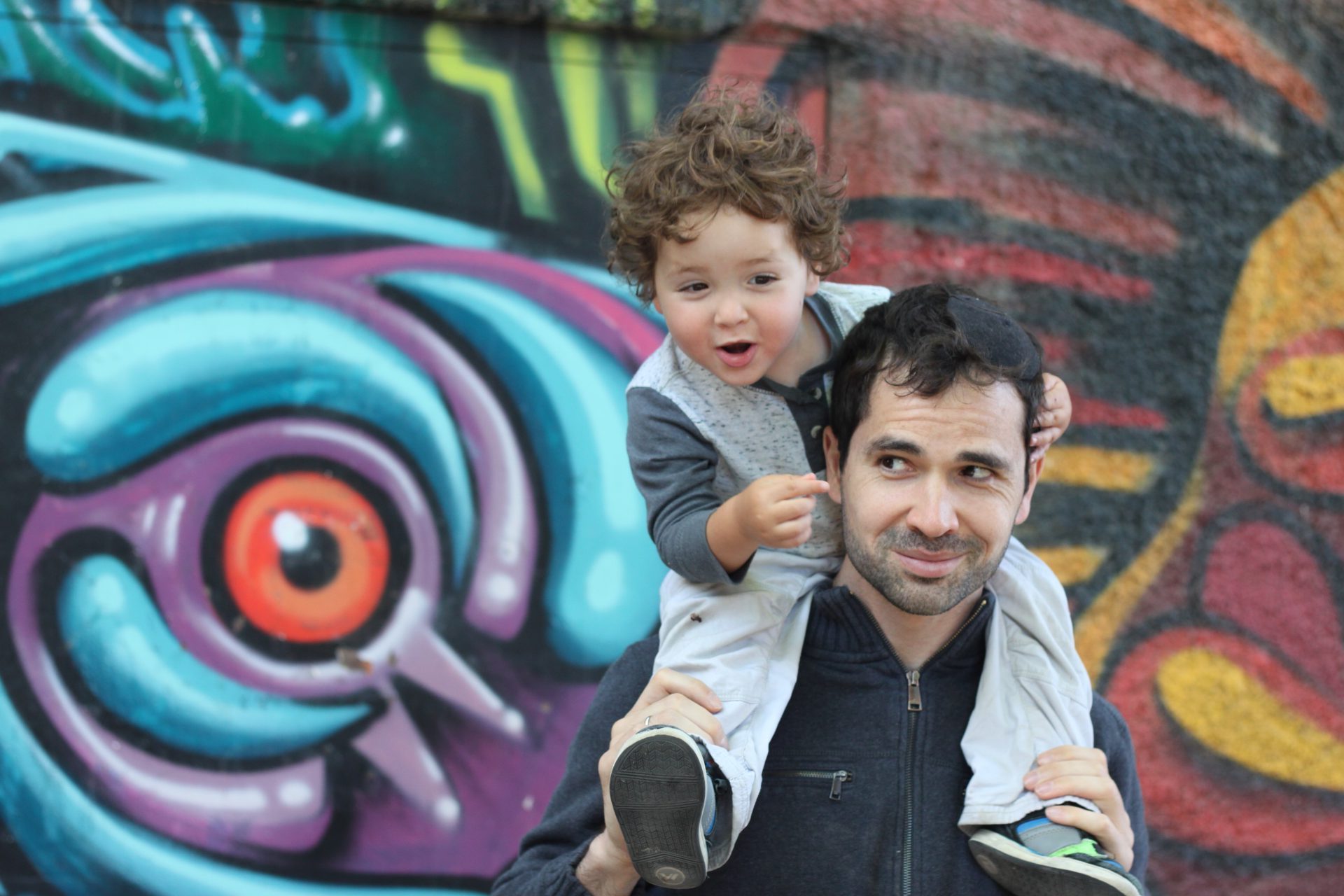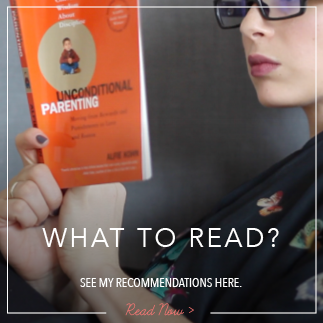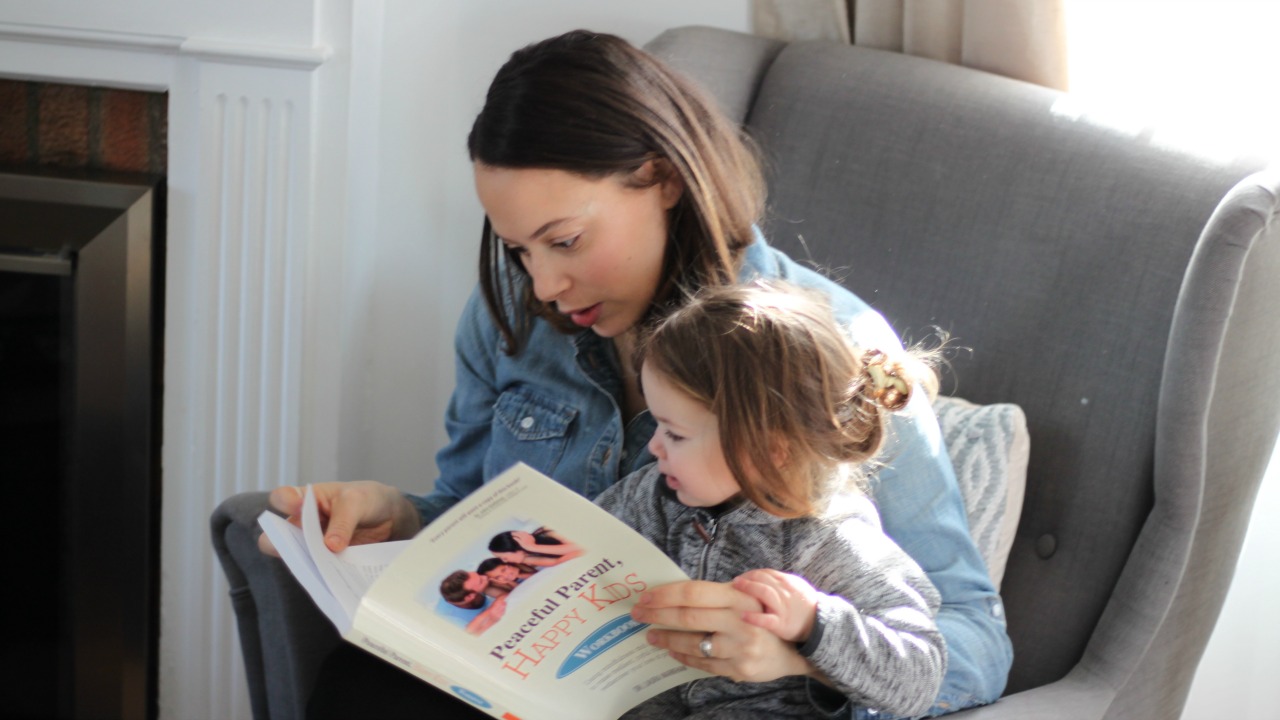What To Do When Your Partner Isn’t On the Same Page With You
Download my FREE ebook: “Zen Secrets of Persuasion” to discover how happy couples do instead of arguing.
One of the questions I often get asked can be boiled down to: “But how do I get my husband on board?”. Of course, the question could just as easily be about “wife” but to be honest – it almost never is.
Concerns such as:
– He’s always on the phone when he’s with the kids
– He spends so little time with them and they seem like his last priority
– He gets triggered SO easily and yells
– He’s got conservative views and believes in punishment
– He thinks boys need to “toughen up” and stop being a baby
… seem to flood my conversations with women all over the world who are working overtime to become more conscious, peaceful and centered with their kids – only to feel that their other halves are undermining this entire process.
So here are some thoughts on this subject, in no particular order. Hopefully they’ll spark a curiosity about how we can foster respect in our adult relationships as well.
- Open channels of communication about parenting
Do you and your partner have an ongoing conversation about your own childhoods? Champion a never ending inquisitiveness about your partner’s (and your own) early years. Understanding their childhoods with them (and, if necessary, with the help of a professional counselor) can be one of the most profound ways to invite healing and resolution. Which, in turn, breed an openness to new patterns in relationships.If your partner’s open to it – and it isn’t too painful – ask questions such as: How did your father connect with you? What was the atmosphere at home? What did you mother do when she was angry? What type of things made you feel loved as a child? Who was always there for you?Warning: these conversations can easily be painful, so enter with caution – but when they’re good, they’re really good. - Exercise patience
Remember that we are hardwired to repeat what we saw at home. Becoming more peaceful is a marathon, not a sprint. It takes practice, devotion and (sometimes a life)time. A lot of conscious effort to reprogram the parenting we received at home and earn a secure attachment in adulthood – if we weren’t lucky enough to enjoy one in childhood. So understand that we all do the best we can with what we have. Punitive, aggressive, or controlling parenting almost always comes from a place of love and good intentions, even though it is almost never received that way. So understand that your partner has a lot to overcome, and will unlikely be able to do so quickly and without much work. - Treat your parenting like a joint business venture
Parenting is arguably the biggest and most important project you’ll ever work on with your partner. And yet we often spend longer contemplating which car to lease or who should be in charge of the recycling. Have regular check-ins to ensure you’re on the same page when it comes to issues like discipline, bedtimes, diet, family time etc should help to make sure you’re parenting together – even if one of you is doing the lion’s share. - Never disrespect or undermine your partner (especially in front of the kids)
When you see your partner getting triggered and lashing out at your kids, it can be tempting to jump in and save the day. But eye-rolling and angrily stepping in to “save” the children undermines your partner’s abilities and efforts. Plus, it becomes a self fulfilling prophecy. Unless real damage is being done, let your partner work it out directly with the kids, and take the opportunity to have a foot soak. If you simply cannot hold back, see if you can guide the situation gently, respectfully and with an eye to protecting both your children and your partner. A kind hand to the shoulder and a “Honey, I got this” can be a supportive way of having your partner’s back. - Your kids are not a competition to be won
Kindly refrain from the (albeit internal) happy dance when your kids say “I love mommy more!” or when they tattle that your partner bribed them with candy. As ego bloating as it is to be the “better” parent, we only ever lose when the other parent loses. Our kids need both of us. And they need us to care for each other (so that they don’t have to). - The only way to teach peaceful parenting is by example
Really the best way to teach anything is by deep modeling… showing and telling. So rather than telling your partner what to do, show them, through your actions, how to do it, and tell them why (more on that later). The catch here is that you’ll need to model peaceful, respectful behavior not only to your children, but to your partner as well. In other words: treat them with the same respect you’d like for them to have towards your children. - Find your partner’s entry point to peaceful parenting
What aspect of respectful parenting would excite them most? Are they interested in research and results? Show them the science behind a non-punitive approach. Do they care about lifestyle and leisure? Show them the benefits of peaceful parenting include a more relaxed, pleasant home. What will “do it” for your partner? - Find the medium your partner most connects with
How does your partner most like to learn? Consider articles, books, audio, podcasts, youtube channels (ahem, ahem). Sometimes hearing about new concepts from us can set our partners on the defensive, poising ourselves as “superior” or “experts” when really we’re all on equal footing. But when it comes from a third party, it can be heard better. Which source of information does your partner trust and connect to? - Don’t flood your partner with too much at once
Even though you’re harboring a laundry list of transgressions long enough to circle the earth three times, tackle issues one at a time. Keep focusing together on small, manageable steps, and celebrate any progress along the way with a cup of tea, a high five or a trip to Paris. - Have these conversations when you’re relaxed, close and alone
(Better than barking orders during bathtime – trust me!)
Can you find areas to appreciate in your partner’s growth?
Can you keep it positive and inspirational?
Remember that your relationship serves as your child’s blueprint for their future relationships.
I would love to hear how you get on the same parenting page as your partner?












0 comments